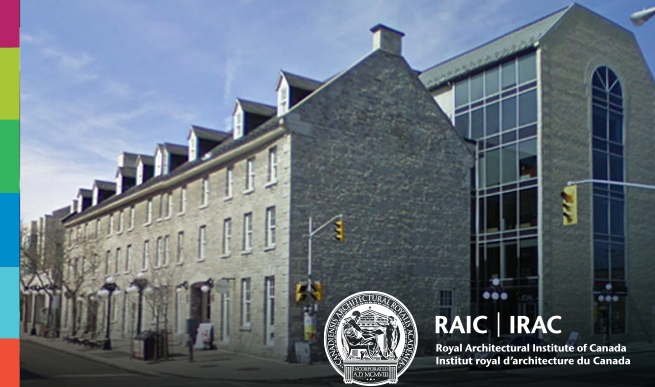
Area
Engineering
Location
UK Other
Closing Date
Sunday 16 February 2025
Reference
ENG218
PhD Studentship – Analysis and Optimization of Wound Field Synchronous Machine e-NVH for Vehicle Traction Applications
This exciting opportunity is based within the PEMC Research Group at Faculty of Engineering which conducts cutting edge research into Power Electronic Systems, Electrical machines, Power Electric motor Drives, and Power Electronic Integration. Industrial funding is provided by SMT a global leader in software for the design and analysis of electrified powertrains.
Vision
We are seeking a highly motivated and ambitious individual with a strong background in Electrical Engineering, Mechanical Engineering, Physics, or a related field. The ideal candidate will possess a master’s degree and have expertise in electromagnetics, machine design, and numerical simulations. Proficiency in software tools for electromagnetic analysis and optimization is desirable. The successful candidate should demonstrate excellent analytical and problem-solving skills, along with exceptional communication and teamwork abilities.
Together we will make technological advances of electric vehicle (EV) technology by addressing critical challenges in the design and optimization of wound field synchronous machines (WFSMs). By investigating the Noise, Vibration, and Harshness (NVH) behaviour of WFSMs in automotive applications and developing novel optimization strategies, the research aims to enhance the driving experience of EVs. The outcomes of this project will lead to quieter and more refined EV propulsion systems, ultimately contributing to the widespread adoption of sustainable transportation solutions and reducing environmental impact. The research conducted within the PEMC Research Group at the Faculty of Engineering will contribute to the group’s ongoing efforts to advance sustainable energy technologies, improve system efficiency, and shape the future of electric powertrains. Additionally the research will contribute to SMT’s software development and support SMT’s global customer base in developing quiet, efficient machines.
Motivation
This project offers a unique opportunity to delve into a critical aspect of electric vehicle (EV) technology – the Noise, Vibration, and Harshness (NVH) characteristics of wound field synchronous machines (WFSMs). While WFSMs hold promise for automotive traction applications due to their lack of rare earth magnets and controllable rotor flux linkage, their NVH behaviour remains relatively unexplored compared to other machine types. Understanding and optimizing NVH in WFSMs is crucial for delivering a refined and quiet driving experience, which is paramount for consumer acceptance of electric vehicles.
Aim
The project aims to make significant contributions to both academic research and industry innovation. The project is funded by industrial funding from SMT and provides the opportunity to directly impact industry. The candidate will research analytically and experimentally the NVH of existing electric machinery, and propose innovative techniques to advance the state-of-the-art in NVH for WFSMs, alongside the traditional goals of power density and efficiency improvement. The outcomes of this research will not only benefit the automotive industry by improving the performance and comfort of EVs but also contribute to the broader goal of transitioning towards sustainable transportation solutions.
Moreover, this project aligns perfectly with the research focus of the PEMC Research Group at the Faculty of Engineering. By joining this project, you’ll be part of a dynamic research community dedicated to advancing sustainable energy technologies, enhancing system efficiency, and shaping the future of electric powertrains. Your contributions will have a tangible impact on the development of next-generation electric propulsion systems, making a lasting difference in the quest for greener and more sustainable transportation solutions.
Who are we looking for?
We are seeking a highly motivated and innovative individual with a strong academic background and a passion for research in electrical engineering, mechanical engineering, or a related field. The ideal candidate will hold a master’s degree and have expertise in electromagnetics, machine design, and numerical simulations. Proficiency in software tools for electromagnetic analysis and optimization, such as MASTA, or equivalent software, 3D cad, Maxwell, or JMAG, is highly desirable.
The successful candidate should demonstrate:
1. Technical Proficiency: A solid understanding of electromagnetics, machine design principles, and numerical simulation techniques.
2. Analytical Skills: Ability to analyse complex problems, identify key research questions, and propose innovative solutions.
3. Communication Skills: Excellent written and verbal communication skills to effectively convey research findings and collaborate with team members.
4. Teamwork: Capacity to work collaboratively within a multidisciplinary research team and engage in productive discussions with supervisors and colleagues.
5. Motivation and Initiative: Self-driven and proactive attitude towards research, with a willingness to take ownership of projects and pursue novel research directions.
This position offers an exciting opportunity for a dedicated researcher to contribute to cutting-edge research and industry in electric vehicle propulsion and make a meaningful impact in the field of sustainable transportation. If you are enthusiastic about tackling real-world engineering challenges and shaping the future of electric powertrains, we encourage you to apply for this PhD studentship.
Funding support
This is a fully-funded PhD studentship which includes tuition fees and a stipend. The funding is supported by SMT. It is open to UK/Home candidates as well as International candidates. The University actively supports equality, diversity and inclusion and encourages applications from all sections of society.
The Faculty of Engineering provides a thriving working environments for all PGRs creating a strong sense of community across research disciplines. Community and research culture is important to our PGRs and the FoE support this by working closely with our Postgraduate Research Society (PGES) and our PGR Research Group Reps to enhance the research environment for PGRs. PGRs benefit from training through the Researcher Academy’s Training Programme, those based within the Faculty of Engineering have access to bespoke courses developed for Engineering PGRs. including sessions on paper writing, networking and career development after the PhD. The faculty has outstanding facilities and works in partnership with leading industrial partners.
SMT is a globally integrated leader in engineering services and software development. Since 2002, SMT has grown from a collective of experienced and passionate engineers into an international enterprise operating within the competitive transmission, electric machine, and electrified powertrain development industry. SMT’s design and analysis software, MASTA, is used by the world’s leading automotive companies to develop current and next generation electrified powertrains.
Enquiries should be addressed to David Gerada ezzdg2@exmail.nottingham.ac.uk
Please apply here https://www.nottingham.ac.uk/pgstudy/how-to-apply/apply-online.aspx
When applying for this studentship, please include the reference number (beginning ENG218 and supervisors name) within the personal statement section of the application. This will help in ensuring your application is sent directly to the academic advertising the studentship.
The University actively supports equality, diversity and inclusion and encourages applications from all sections of society.
![Postdoctoral and Research Opportunities at McGill University [CA]](https://scholaridea.com/wp-content/uploads/2020/06/mcgill-university-30-may-2019-768x402.jpg)

